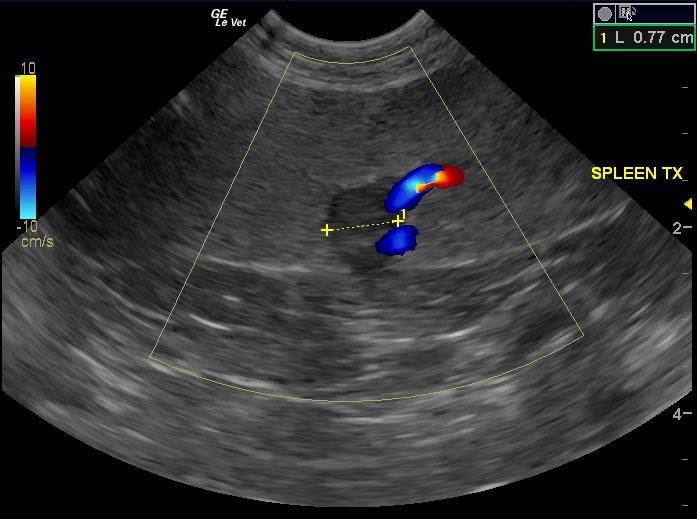An 11-year-old FS Labrador Retriever mix with history of hypothyroidism was presented for weakness. The physical exam was unremarkable other than mild tachypnea under exertion. On urinalysis, trace proteinuria and hematuria and moderate epithelial cells were present. CBC and blood chemistry showed lymphopenia, basophilia, eosinophilia, thrombocytopenia, elevated ALP and elevated AST activity, elevated CK, and hypertriglyceridemia. An EKG done one month later showed sinus rhythm with sustained idioventrical rhythm.
An 11-year-old FS Labrador Retriever mix with history of hypothyroidism was presented for weakness. The physical exam was unremarkable other than mild tachypnea under exertion. On urinalysis, trace proteinuria and hematuria and moderate epithelial cells were present. CBC and blood chemistry showed lymphopenia, basophilia, eosinophilia, thrombocytopenia, elevated ALP and elevated AST activity, elevated CK, and hypertriglyceridemia. An EKG done one month later showed sinus rhythm with sustained idioventrical rhythm. Blood pressure was within normal range The patient was treated with 40 mg Sotolol twice daily. Presented for ultrasound due to acute onset hind limb weakness.
